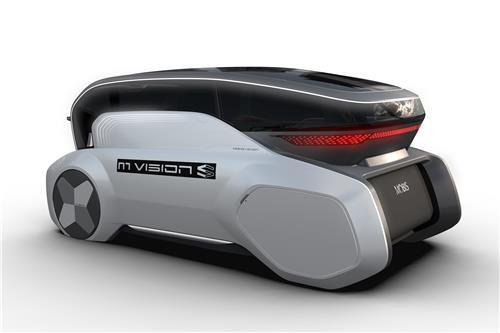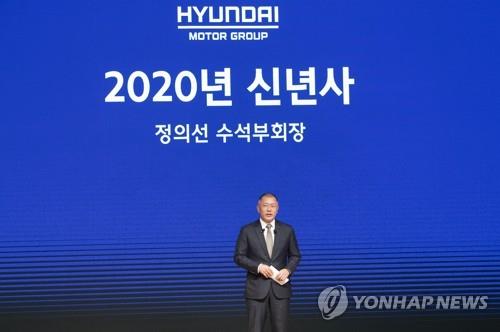- California Assembly OKs highest minimum wage in nation
- S. Korea unveils first graphic cigarette warnings
- US joins with South Korea, Japan in bid to deter North Korea
- LPGA golfer Chun In-gee finally back in action
- S. Korea won’t be top seed in final World Cup qualification round
- US men’s soccer misses 2nd straight Olympics
- US back on track in qualifying with 4-0 win over Guatemala
- High-intensity workout injuries spawn cottage industry
- CDC expands range of Zika mosquitoes into parts of Northeast
- Who knew? ‘The Walking Dead’ is helping families connect
Hyundai Mobis to invest US$25 mln in British HUD company
Hyundai Mobis Co., South Korea’s biggest auto parts company, said Wednesday it will invest US$25 million in a British augmented reality company as it bets on future mobility technologies.
Hyundai Mobis made the decision to “preemptively” invest in infotainment technologies, which it expects to become another growth driver together with autonomous driving and electrification technologies, the company said in a statement.
Hyundai Mobis and Enviscis will jointly develop an augmented reality head-up display (AR HUD) in the carmaker’s autonomous vehicles with an aim to mass-produce the vehicles equipped with the AR HUD system by 2025, it said.
IHS Markit, a London-based market research firm, projected the global HUD market would report an average of 12 percent growth annually by 2025.
In particular, the market tracker expected the number of vehicles with the AR HUD system to reach 1 million in 2025 and 12 million in 2030.
In the past three years, Hyundai Mobis has increased investments in overseas startups with advanced future mobility technologies, as it seeks to take the lead in next-generation vehicles.
In September last year, the company said it will set up a US$4 billion joint venture with Ireland-based autonomous vehicle startup Aptiv this year to develop a self-driving platform.
In the following month, the company said it will invest $50 million in U.S. light detection and ranging (LiDAR) company Velodyne Lidar for autonomous driving technologies to mass-produce Level 3 autonomous driving systems by 2021.
LiDAR is a key component in the overall sensing package required to make autonomous cars a reality.
A Level 3 car, if fully developed, will allow lane changes and other autonomous driving functions to work without intervention by the driver.
Hyundai Mobis introduced a Level 4 self-driving automation technology in its concept M.VISION at CES in January this year.
At Level 4, a vehicle can drive itself under limited conditions and will not operate if all required conditions are not satisfied. At Level 5, a vehicle’s automated driving features can drive under any conditions.
Hyundai Mobis is a key affiliate of Hyundai Motor Group, which has Hyundai Motor Co. and Kia Motors Corp. under its wing.
In January, Hyundai Motor Group said it will invest more than 100 trillion won in the next five years to increase its presence in the future mobility markets.
“We are planning to launch 44 electrified vehicles, including 11 all-electric models, by 2025, as we aim to take the lead in electrified car markets based on the development of our own platforms and core electrified car components,” Hyundai Motor Group Executive Vice Chairman Chung Euisun said in a New Year’s speech at the group’s headquarters in southern Seoul.
In 2019, the group sold 24 kinds of electrified models in global markets, and it plans to expand the lineup to 13 gasoline hybrid, six plug-in hybrid, 23 all-electric and two hydrogen fuel-cell electric models by 2025.















